As we age, it’s normal to notice little changes in how quickly we recall names or process information. But when everyday forgetfulness feels more like a mental cloud than the occasional “senior moment,” it might be due to brain fog.
It can leave you feeling sluggish, unfocused, and mentally disconnected.. Brain fog can stem from various causes, like medication side effects, dehydration, poor sleep, and even stress. Thankfully, it isn’t a permanent part of aging.
At places like Parsons House Preston Hollow, where maintaining mental sharpness is a priority, personalized care and engaging activities can help manage symptoms of brain fog. From balanced nutrition to memory-focused programs, these approaches aim to support seniors in staying mentally active and connected.
What Is Brain Fog?
Brain fog is a way people describe symptoms like:
- Mental fatigue
- Confusion
- Trouble concentrating
The experience of brain fog is much like a cloud cast over your mind, making it difficult to process thoughts clearly or perform tasks efficiently. While it can affect anyone, brain fog is particularly common in seniors due to age-related changes in mental processing and external factors like lifestyle or health concerns.
Common Causes of Brain Fog in Seniors
Many things contribute to brain fog in seniors. While some causes are temporary and easily addressed, others may stem from underlying health conditions. Here’s a breakdown of the most common culprits:
1. Nutritional Deficiencies
Low levels of essential nutrients, such as vitamin B12, folate, and omega-3 fatty acids, can disrupt cognitive function. Seniors often absorb fewer nutrients due to age-related changes in digestion, making this issue more common.
2. Dehydration
Often overlooked, dehydration can significantly impair cognitive function. Seniors are at higher risk because the sense of thirst diminishes with age.
3. Chronic Stress or Anxiety
Persistent mental stress or feelings of worry can tax the brain, leading to signs of fogginess. Stress-related hormones, such as cortisol, can disrupt memory and concentration over time.
4. Medical Conditions
Conditions like diabetes, thyroid disorders, and autoimmune diseases (e.g., lupus) can contribute to brain fog. Side effects of certain medications taken for these or other chronic illnesses also play a role.
5. Sleep Disruptions
Deep, restorative sleep is vital to mental clarity. Sleep conditions like insomnia or sleep apnea, which are experienced by many seniors, can lead to cognitive sluggishness.
6. Lack of Physical Activity
A sedentary lifestyle can limit oxygen and blood flow to the brain, impairing its functionality. Physical exercise plays a key role in keeping the mind sharp.
7. Medication Side Effects
Polypharmacy, or taking multiple medications—common among seniors—can often result in unwanted side effects like brain fog.
Recognizing the Symptoms of Brain Fog
It’s not always easy to know if you or a loved one is experiencing brain fog. Here are some common signs to keep an eye on:
- Difficulty concentrating or staying focused on a task
- Forgetting appointments, names, or recent conversations
- Mental fatigue, even after adequate rest
- Feeling sluggish or “out of it”
- Trouble solving problems or processing information
- Becoming easily distracted or confused
- A general sense of disorganization
Practical Solutions to Manage Brain Fog

Although brain fog can be frustrating, it is far from unbeatable. With targeted strategies, you can often reduce its effects and regain clarity. Here’s how:
1. Improve Nutrition
Work with a healthcare professional or dietitian to address possible nutrient deficiencies. Add brain-boosting foods like salmon, walnuts, leafy greens, and whole grains to your meals.
2. Stay Hydrated
Make water consumption a habit. Track your intake with a reusable water bottle or set reminders throughout the day.
3. Create a Sleep Routine
Focus on at least 7-8 hours of sleep. Establish a bedtime routine, avoid caffeine late in the day, and create a relaxing environment conducive to restful sleep.
4. Exercise Regularly
Even light physical activity, like 20-minute walks or chair yoga, can improve blood flow to the brain and boost cognitive function. Find enjoyable activities to stay motivated.
5. Practice Mindfulness & Stress Management
Engage in deep breathing exercises, meditation, or other relaxation techniques to help manage mental stress. These can reduce fog-inducing cortisol levels over time.
6. Review Medications with a Doctor
Some medications, particularly when combined, may contribute to brain fog. Consult your healthcare provider about reevaluating prescriptions or dosages.
7. Cognitive Stimulation
Challenge your brain regularly with puzzles, reading, learning a new skill, or engaging in social activities. These activities can strengthen memory, attention, and overall mental agility.
Maintaining Cognitive Health as You Age
Cognitive health doesn’t have to decline as you grow older. Maintaining mental clarity is about adopting a proactive approach to health and well-being. By prioritizing good nutrition, regular exercise, brain-stimulating activities, and quality sleep, seniors can continue to lead a fulfilling and independent life. At Parsons House Preston Hollow, we believe in creating a vibrant community where seniors can thrive. From engaging activities to supportive care, our team is dedicated to helping residents maintain their independence and cognitive health.
Schedule a tour to see how we can help your loved one live life to the fullest.



